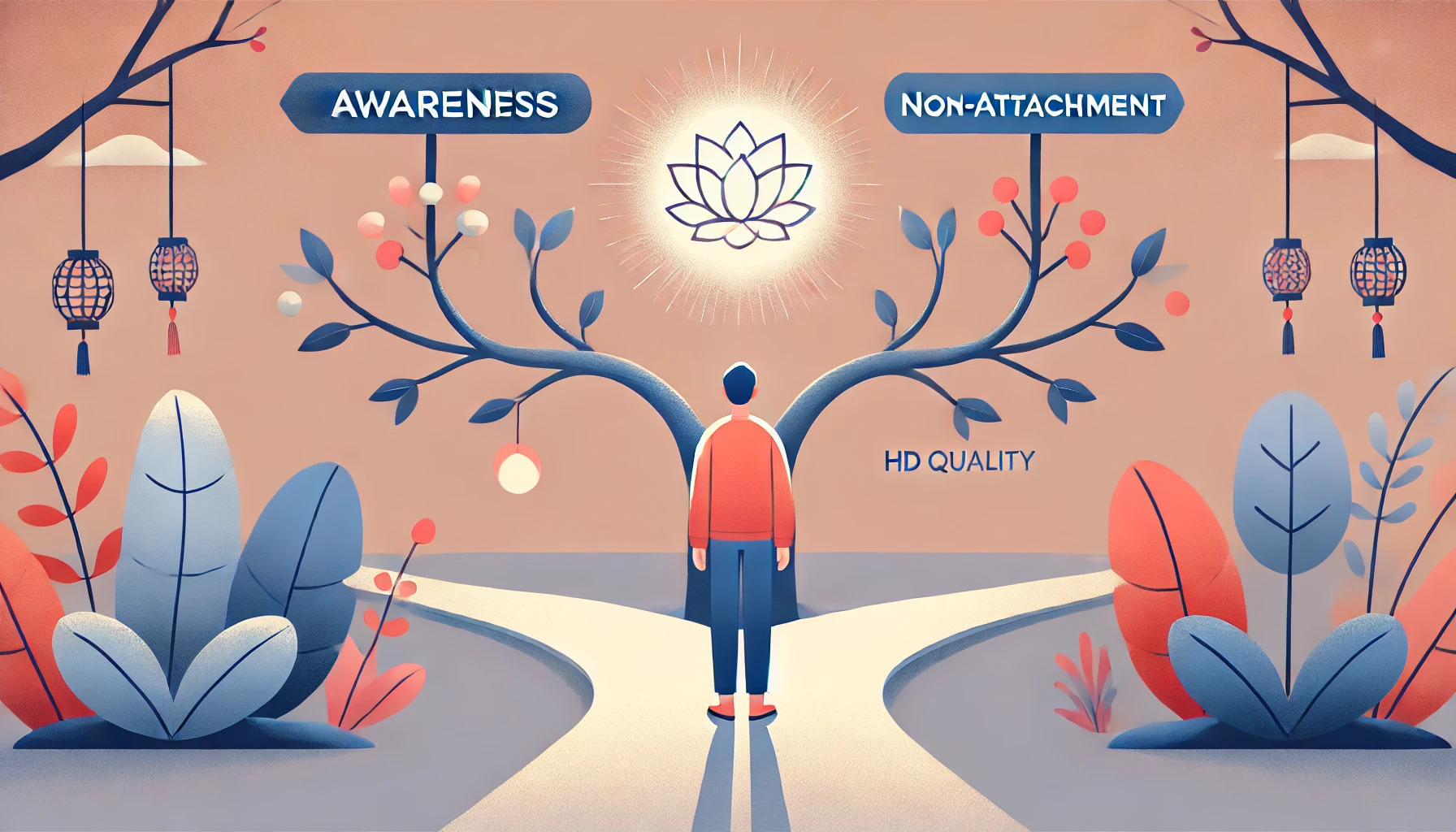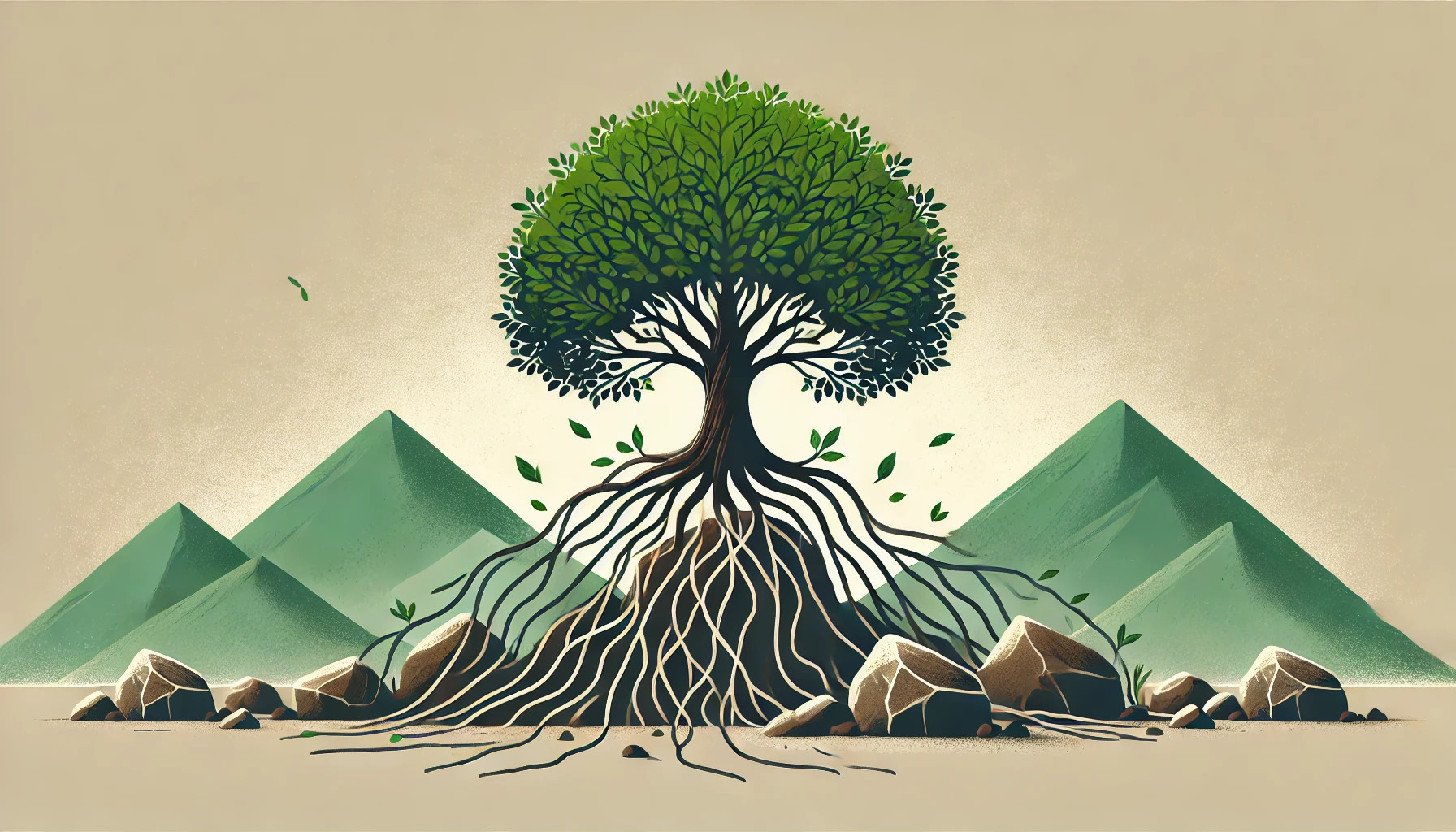Balancing Favourable and Unfavourable Circumstances

Life presents us with a mix of favourable and unfavourable conditions. These are not random occurrences but are deeply connected to our past actions and karma. The key to spiritual progress lies in maintaining equanimity in the face of both. Favourable conditions, while pleasant, can lead to spiritual complacency if not handled with awareness. On the other hand, adversities, though challenging, offer unique opportunities for growth and self-realisation.
Param Gurudev explains that our reactions to people and situations are reflections of our internal state and past karmic connections. When we encounter adversities, it’s essential to view them as opportunities for spiritual learning rather than sources of distress. This shift in perspective helps in reducing the impact of negative karma and fosters a more resilient mindset.
The Role of Awareness and Non-Attachment

Awareness is the cornerstone of spiritual practice. It involves a deep understanding of the self and the realisation of how external conditions influence our inner state. Param Gurudev stresses the importance of mindfulness in every action, as this awareness leads to the dissolution of karmic bonds and promotes spiritual liberation.
Non-attachment, or the ability to remain unaffected by external circumstances, is another vital aspect. It prevents us from becoming overly attached to favourable conditions or overly distressed by unfavourable ones. By cultivating non-attachment, we can maintain a balanced and peaceful mind, irrespective of the external environment.
Transforming Adversities into Opportunities

Adversities are often seen as obstacles, but Param Gurudev encourages viewing them as catalysts for spiritual growth. Every challenge we face is an opportunity to practise patience, resilience, and inner strength. By confronting adversities with a positive and proactive mindset, we can transform them into stepping stones towards spiritual enlightenment.
Gurudev shares that those who challenge us the most can be our greatest teachers. Adversarial individuals test our patience and equanimity, pushing us to rise above our limitations and develop a deeper understanding of compassion and forgiveness. This perspective shift is crucial for spiritual maturity and long-term peace.
Maintaining Equanimity in Relationships

Personal relationships play a significant role in our spiritual journey. Gurudev highlights the importance of understanding the karmic dynamics at play in our interactions with others. Whether we are dealing with supportive or challenging individuals, maintaining equanimity is essential.
Supportive individuals can lead to attachment if we are not careful, while challenging ones can evoke negative emotions. Recognizing these dynamics helps us navigate relationships more mindfully, ensuring that we do not lose our spiritual balance. By remaining equanimous, we can better manage our interactions and continue our spiritual progress uninterrupted.
The Importance of Divine Connection

A strong connection with the divine or a spiritual Guru provides guidance and support on the path of spiritual growth. This connection helps maintain awareness and non-attachment, especially during challenging times. Param Gurudev reminds us that regular reflection on the teachings of the Guru and the divine presence in our lives fosters a sense of inner peace and resilience.
This connection serves as a constant reminder of our spiritual goals and helps keep us grounded. By staying connected to the divine, we can navigate life’s dualities with greater ease and grace.
Practical Steps for Spiritual Resilience
To cultivate inner resilience and balance life’s dualities, Gurudev suggests several practical steps:
- Daily Reflection: Spend time each day reflecting on your actions and their karmic implications. This practice fosters greater awareness and mindfulness.
- Meditation: Engage in regular meditation to strengthen your connection with the divine and maintain inner peace.
- Non-Attachment: Practise non-attachment by reminding yourself that external conditions are temporary and should not dictate your inner state.
- Gratitude: Cultivate gratitude for both favourable and unfavourable conditions, seeing each as an opportunity for spiritual growth.
- Equanimity: Strive to maintain equanimity in all interactions, recognizing that each person and situation is a reflection of your inner state and past karma.
Overcoming Spiritual Complacency
One of the greatest challenges on the spiritual path is overcoming complacency, especially when life seems to be going well. Favourable circumstances can lull us into a false sense of security, making us forget the importance of our spiritual practices. Gurudev advises that even in times of comfort, one must remain vigilant and aware of the potential for spiritual laziness.
Embracing Challenges as Growth Opportunities
Conversely, unfavourable conditions often provoke stress and dissatisfaction. Gurudev teaches that these moments are crucial for deep spiritual work. They force us to confront our limitations, fears, and attachments. By embracing these challenges, we can strengthen our inner resilience and deepen our spiritual understanding.
Building a Supportive Spiritual Community
While personal practice is essential, being part of a supportive spiritual community can significantly enhance one’s journey. Gurudev emphasises the value of satsang (spiritual gatherings) where individuals can share experiences, learn from each other, and receive guidance. Such communities provide a collective energy that can inspire and sustain individual efforts.
Practical Tips for Daily Practice
Incorporating spirituality into daily life need not be complicated. Simple practices like mindful breathing, daily affirmations, and regular reading of spiritual texts can make a significant difference. Gurudev suggests setting aside specific times each day for these practices to create a routine that nurtures spiritual growth.
The Role of Self-Compassion
Self-compassion is another crucial element Gurudev highlights. Spiritual growth can be challenging, and it’s easy to become self-critical when we fall short of our ideals. Practising self-compassion involves acknowledging our struggles, forgiving ourselves for our mistakes, and committing to continuous improvement without harsh judgement.
Cultivating Patience and Perseverance
Spiritual growth is a gradual process that requires patience and perseverance. Gurudev encourages a long-term perspective, reminding us that significant transformation doesn’t happen overnight. By staying committed to our practices and maintaining faith in the process, we can gradually overcome our challenges and achieve deeper levels of inner peace.
Conclusion
Cultivating inner resilience and achieving spiritual growth requires a deep understanding of life’s dualities. Param Gurudev’s teachings offer profound insights into balancing favourable and unfavourable circumstances through awareness, non-attachment, and equanimity. By transforming adversities into opportunities and maintaining a strong divine connection, individuals can achieve lasting inner peace and resilience.





